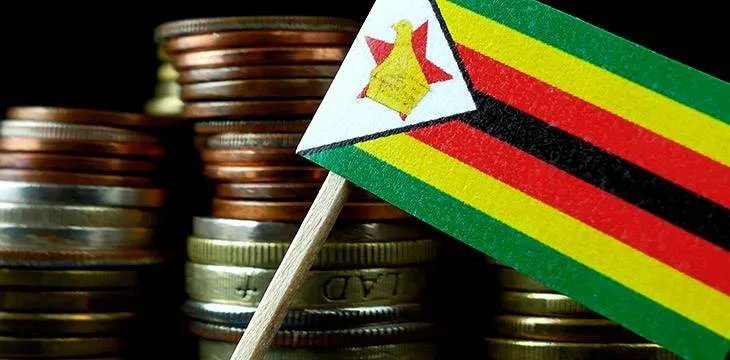|
Getting your Trinity Audio player ready...
|
Zimbabwe is introducing a new currency in the next two weeks, according to several media outlets. The new currency targets the liquidity shortages in the Southern African country, giving the central bank monetary policy control after years of using foreign currencies. The yet-to-be-named currency will be denominated in coins and notes, with the maximum value being $0.25.
Speaking to journalists, Reserve Bank of Zimbabwe Governor John Mangudya said the decision to release the new currency was arrived at by the regulator’s monetary policy committee. He stated, “The committee felt there was a need to boost the domestic availability of cash in the economy for transactional purposes through a gradual increase in cash supply over the next six months.”
This is the latest twist in a country that has struggled quite a bit with its currency standards. Zimbabwe abandoned the use of its Zimbabwean dollar a decade ago after recording massive inflation which effectively devalued its currency. It then turned to foreign currencies such as the U.S. dollar, the Australian dollar, the sterling pound and the euro. This gave the country some stability, but it was short-lived, as the use of foreign currency was outlawed earlier this year.
Zimbabwe’s lack of cash
This year, Zimbabwe has had a unique challenge: the lack of physical cash. According to local media outlets, most ATMs in the country no longer dispense cash. This is the problem that the new currency is out to solve.
And if you’re thinking that the printing of money could cause inflation, the governor clarified, “There is a misconception that once you introduce a currency, then inflation is going to increase. We are simply giving people a chance to choose between electronic balances and cash.”
Why the new currency will fail
Experts believe that this new currency will fail, just like other previous attempts by the Zimbabwean government. Gift Mugano, an economics professor told Al Jazeera, “The central bank doesn’t have the reserves to back the value of the currency and has only a month’s import cover at best. It’s going to be difficult to maintain the value of the currency.”
Mugano isn’t alone in criticizing the issuance of the new currency. Victor Bhoroma, a Harare-based economist stated, “It is obvious the Zimbabwean dollar will not hold any value because of negative fundamentals in the economy which include key among them confidence deficit and high demand for foreign currency to import commodities [current account deficit].”
One of the key issues that the currency faces is that the government can print it at will, but the economy doesn’t have the capability to sustain it.
Bhoroma explained, “It is also inevitable that the central bank will continue to grow money supply in the economy to fund runaway government expenditure. This will further weaken the local currency.”
Bitcoin to the rescue
As the country struggles with its currency issues, it becomes clearer by the day that there’s one solution that’s designed to fix exactly this kind of challenge: Bitcoin.
Bitcoin faces no such threat as the rate at which new coins are ‘minted’ is pre-determined using mathematics and cryptography. This ensures that nobody, be it the government or private entities can take advantage of the money supply or skew it to favor them.
And with the people of Zimbabwe really struggling to find a way to transact in their everyday economic activities due to lack of liquidity, Bitcoin could really come in handy for this as well. The real Bitcoin offers the cheapest transaction fees, down to just $0.001 currently. This makes it ideal for micropayments. What’s more, the transactions are instant which is crucial for payment solutions.
The people of Zimbabwe have already started using crypto in order to escape the uncertainty that comes with their currency. However, the regulators are yet to put in place policies that can foster the growth of crypto payments in the country. Once they do, and they will, Zimbabwe will be able to break the shackles of inefficient monetary systems that have held the country back for decades.

 07-04-2025
07-04-2025 





